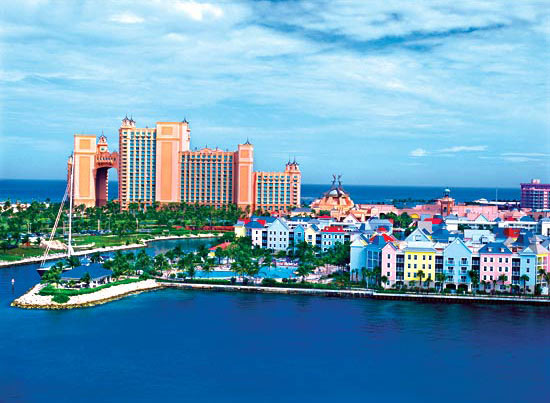Timeshare Resorts and Hotels as Mixed Use Properties
Sunday, January 27, 2013

In the business of vacation ownership or shared ownership, the term “mixed use property” means a resort that is part timeshare condos or timeshare units and part hotel. While once this was a rarity in vacation ownership timeshare resorts, for many developers, especially the branded hospitality providers, this has become a more typical way to develop a property. But mixed use properties can go far beyond the idea of hotel and timeshare resort combination.
Consider, for example, the Radisson Blu Aqua Hotel in Chicago, with its 334 hotel rooms, 474 apartments and 262 condos. Developed by the Magellan Development Group LLC, the Radisson Blu Aqua Hotel has 100 percent leasing on the apartments and 100 percent sales on the condo real estate component of the project. The beautiful property in the heart of downtown Chicago works for the same reason that mixed-use timeshare resort and hotel properties work—the amenities are maximized while the developer risk is minimized.
Although mixed-use properties can be more challenging from the perspectives of zoning, financing, and even taxation, they make it possible for one property to offer primo amenities that perhaps as single entities, they wouldn’t be able to support. For example, spa services, business centers, multiple restaurants, conference centers, shopping, and clubs can thrive at a mixed-use timeshare resort and hotel property.
Brian Gordon, VP of development for the Radisson project in Chicago explains it this way, “Combining uses on top of each other, it makes for a synergistic use. Complimentary amenities, shared parking, sharing costs split among all the different users so it operates more efficiently.”
Timeshare Resorts paired with Hotels
As vacationers, we all love to escape to a resort that was built specifically for the purpose of vacation ownership—a resort custom designed to appeal to the needs and interests of families or couples on holiday vacation. No business people in suits briskly striding through the lobby and common spaces. No conference or convention attendees simultaneously converging on the restaurants and resort lounges. Even the attitudes at a resort hotel are different from those of the guests at a conference center hotel. There’s a lightness and joy to vacationers and less concern if your children whoop for joy in the resort swimming pool. Being on vacation is simply more fun than being on the job.
But many of today’s most successful resorts, effectively combine a hotel component with timeshare units, a trend that may continue to grow as timeshare rentals become more and more popular. While there is much to be said for the all-vacation timeshare resort mentality, there are also many positives about mixed use resorts, in addition to the potential to offer both hotel guests and timeshare owners a greater range of amenities.
Consider how easy it would be to take your family along on your business travels if your meetings were held at hotels that included timeshare. Another benefit of the hotel and timeshare resort combo is that in areas where real estate is in high-demand, such as beachside, certain ski areas, and even select urban locales, both markets get the opportunity to enjoy a great property in a great location.
Howard Nusbaum, president and CEO of the American Resort Development Association, has pointed out that hotel guests become repeat guests when they love the hotel experience. “By the third or fourth visit, [the guest] wants to feel some affinity,” Nusbaum says, “It’s very compatible to your marketing mix.” In other words, happy hotel guests actually create a pipeline of potential new timeshare owners.
In this multi-sided issue, there are clearly many positives and a few negatives to consider. But one thing is certain, in a tough market with an uncertain economy, creative business solutions will continue to be a differentiating factor determining which companies thrive and which ones fail to survive.


